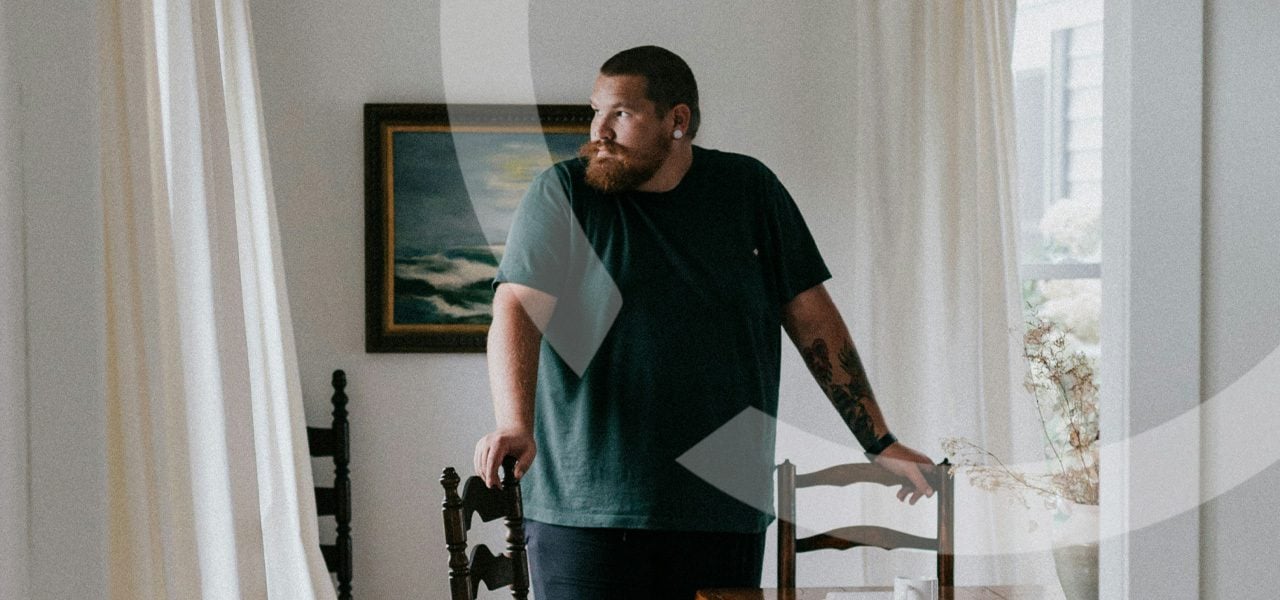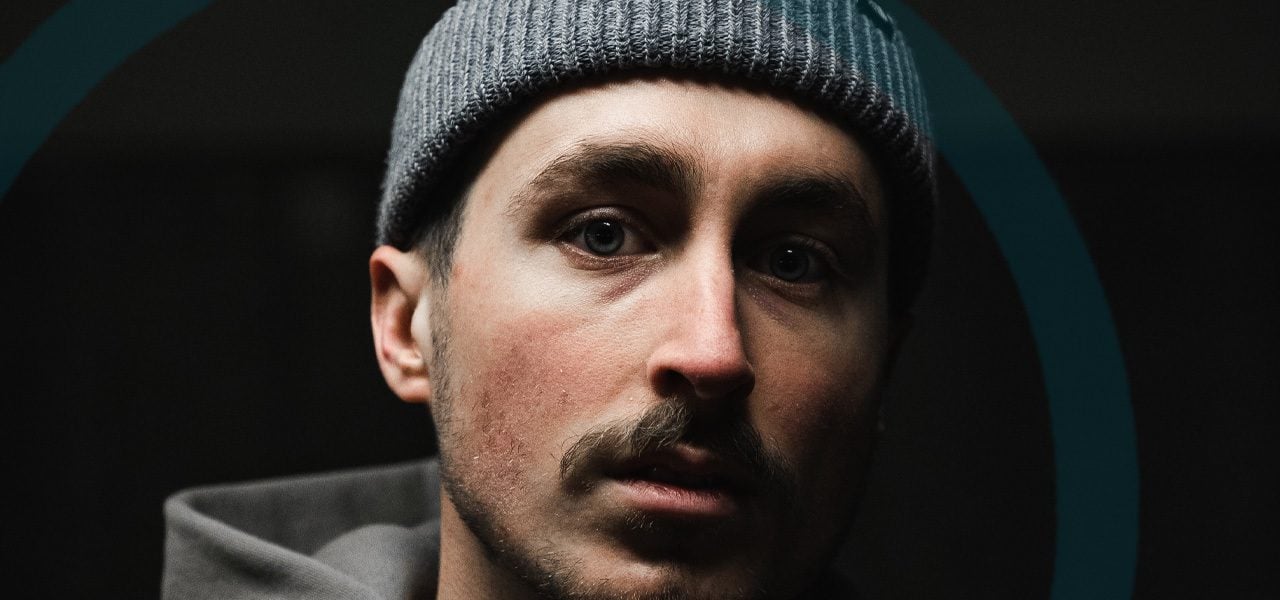By Jeff Vircoe;
Resiliency is close to the heart of what is needed to get sober and to stay sober. And Shawn C., an alum of EHN Canada’s Bellwood Treatment Centre, knows a thing or two about resiliency.
He learned a lot about along the bumpy life path leading to the centre in Toronto’s Sunnybrook area. He is learning even more about it since he left.
It has not even been a year since Shawn woke up, or came to, at Bellwood. The previous years had been harsh, from childhood on, in and out of recovery. One step forward. Slipping down rungs and staggering backwards a bunch more. Bellwood was his line in the sand.
Over nine months later, he is still on track. Pushing forward, helping others, helping himself.
Family plays a big part in getting him to seek help
Shawn came to Bellwood last summer during the COVID pandemic’s dog days. It was his second formal attempt at treatment. Eleven years earlier, in his late 20s, he had been persuaded by his family to give it a shot after a near-fatal decision.
“I tried to pump the exhaust into the truck and go to sleep. The neighbour came home and caught me. I was passed out and they dragged me out, mouth-to-mouthed me, called the ambulance, and I was gone to the hospital,” he recalls.
“At the hospital, I was woken up and the whole family is there, just bawling. I said alright, I will get clean. I had never thought of it before, didn’t want to do it and it was never even considered or on the table. But I went right into a treatment centre.”

Today, he knows he wasn’t ready, and wasn’t doing it for the right reasons. He lasted barely three weeks, broke some hard and fast rules, and found himself back in the throes of the helplessness that is substance use disorder.
It was a place he was familiar with. Raised in rural Southern Ontario, in part by loving grandparents, and in part by a father unable to provide stability and nurturing he needed, he turned to substances early and often. As a young teen, he was soon involved in using substances to gain acceptance in his peer groups. He was dealing drugs, getting into fights, and building a reputation in his community and law enforcement. He dropped out of high school after Grade 9. Through it all was alcohol.
“Alcohol is my best friend. Still my best friend. I just haven’t talked to it in a while,” he says today.
Spiralling out of control
His spiral post-treatment was epic, something he recalls as what he terms his “highlight reel.” Pot had begat chemicals, which begat cocaine and crack cocaine, and eventually, opiates, opioids, Fentanyl, and heroin.
“I am a construction worker, so you know how I drink – it is either we are drinking beers after work or hitting whiskey on the weekend, right? In the end, I had to have a cocktail. I needed so much dope so I could be good on the cocaine. But I needed so much down so I could keep it level. Then I needed the right amount of hard spirits, like whiskey or tequila or something to get me up to that level. But then I would need enough beer to carry it through the night. There was always cocktail by then.”
Shawn did learn one key staple by going to treatment. That old saying in recovery circles – that mutual support groups like Alcoholics Anonymous and Narcotics Anonymous will mess up your drinking and drugging plans – proved true in his case.
Recovery seeds are planted
“It is my belief that once the seed is planted, it is planted. Once you go into the rooms … once you get a bit of that Big Book in you, I believe thoroughly that you will never use right again ever. You are never, ever going to have a good time again. You have to get sober because it is in your head. It is planted. You know it is wrong.”
So, he began appearing at meetings again in his early 30s. Collecting a month of abstinence here, a month there. He fell in love and had a daughter. His lifestyle wasn’t conducive to maintaining sobriety, so that relationship didn’t last. He fell in love again, hard. For the next seven years, they both tried to stay sober but were in and out. When they were in recovery, things went swimmingly. They both worked their programs, volunteered at shelters, and helped make their community a better place. Their love story was passionate, but their recovery was bumpy, and tenuous.

Last spring, the last relapse ended her life. Families were shattered. Sober nearly two years, Shawn couldn’t keep handling the grief and went down hard one more time.
“I stayed out seven to 10 days then I showed up at work covered in blood and stinking of booze. They said ‘You are going to treatment, buddy.’”
A new beginning at the end of the road
In July of 2022, a month after his partner’s passing, he ended up at Bellwood. As messed up emotionally, mentally, and spiritually as he could be, “I was willing to give it a shot for everybody that got me there.”
“I will never make it through this one without crying,” he says shaking his head. “I was willing to give it a shot because I could feel her. She was everywhere and I could feel it. I knew it was what she would want.”
He has been sober since.
His Bellwood stay lasted 48 days. It was there he finally put the sack of rocks that he had been carrying throughout the traumatic and difficult years of his childhood, the scary and perilous years of his substance use. He faced his past and his present and began the ongoing process of grief.
Connecting with compassionate people
Shawn has a stack of rich memories of people who helped keep him accountable at Bellwood.
“When I went into Bellwood, they greeted me with the most beautiful girl right at the door that you could ever imagine. I don’t just mean looks. Her aura. Her presence. She was just wonderful. And so was the second one. They just made you feel good,” he says, almost shyly.
With COVID still raising havoc across the province, “I went upstairs (into isolation) for a few days. I am ADHD so that was not good. They said you can have a guitar, so they went downstairs and brought me up a guitar. They brought me up some weights to work out. I didn’t even end up being three days and I was down in a room with a couple of the boys, and I was on my way.”
He began attending various classes and lectures on the truth of substance use issues, the evidence-based solutions that can be applied to combat it.
“I started listening in classes. Cognitive Behavioural Therapy, Dialectical Behavioural Therapy, Trauma Therapy, concepts like “Hungry, Angry, Lonely, Tired – I was just taking it all in,” he says with a smile.
Mostly there was the importance of connecting with others as a means of getting through without relapsing, especially in those early days, weeks, and months.

“They were trying to help me along. I wouldn’t ask for help, right? Too much pride and ego. But they kept on me. There were a couple of counselors, they weren’t my counselors, but they took me on for whatever reason. One of them, Joanne … took the time to say ‘Shawn – unclench your jaw,’ while just walking by through the hall. ‘Shawn. Take a deep breath. You’re not breathing.’ I’d take that deep breath.”
The grief work was difficult and remains so, though not in the same vein as it was in the early days.
“I did not know how to cry yet. It would get so bad that it physically hurt. Then I would have to go punch a tree or hurt myself, not cutting or that, but I had to physically hurt myself to get it going (crying) and then it would release, right?”
It is just nine months later. Today he is rebuilding, working hard, playing hard. Grieving hard. Becoming the person he always wanted to be.
Gratitude & Resiliency
As spring break offers its annual hope of warmer, softer times following another cold harsh winter, Shawn is playing in the snow with a couple of kids out in the hills around Barrie, Ont. His eight-year-old daughter is laughing, his late partner’s son is also having fun. Sure, it is not necessarily the ideal situation, as his daughter lives seven hours round trip away, while the boy resides on the other side of town with his grandparents.
But just for today the threesome is in the moment of gratitude and joy. Giggles, snowballs and dunks in the white banks, rosy, red cheeks, and bright white teeth. Recovery.
The resiliency is growing.
He picked a sponsor he fondly refers to as Ned Kelly, for his straight up approach. He drives newcomers to meetings, takes their phone calls, takes them through the Big Book, the same one that messed up his drinking. He works hard as a carpenter on the Go Line transit system to Barrie, and he lives with a pair of close friends with several years in recovery. Mostly, he remains grateful for Bellwood.
“How do I say it? Everything that was supposed to happen in there happened. You’ve just got to be ready for it and open. They gave me everything I needed, as much as it drove me nuts and I drove them nuts,” he says with a smile.
“I am still connected to 35 or 40 people that I was in there with. We talk to one another, we put each other together, we say go check on that person because we are in different towns, cities, and provinces.”
He knows in his heart he is sober because of the people who had faith in him, the ones who remain, the ones who have passed.
“I wouldn’t have made it and there are so many people that don’t have it,” he says quietly.
If connection is the opposite of addiction, as many do believe, then Shawn is doing his part, staying in the solution. Showing his resiliency.
“I try to connect with everybody I can, and whether I will be able to help somebody through you, this story, or whatever, it is all good. I’ve still got lots of work to do.”
Beginning a journey of recovery starts here.
If you would like to find out more about our treatment options for you or someone you love, fill out this form and our admissions team will get in touch with you soon.




